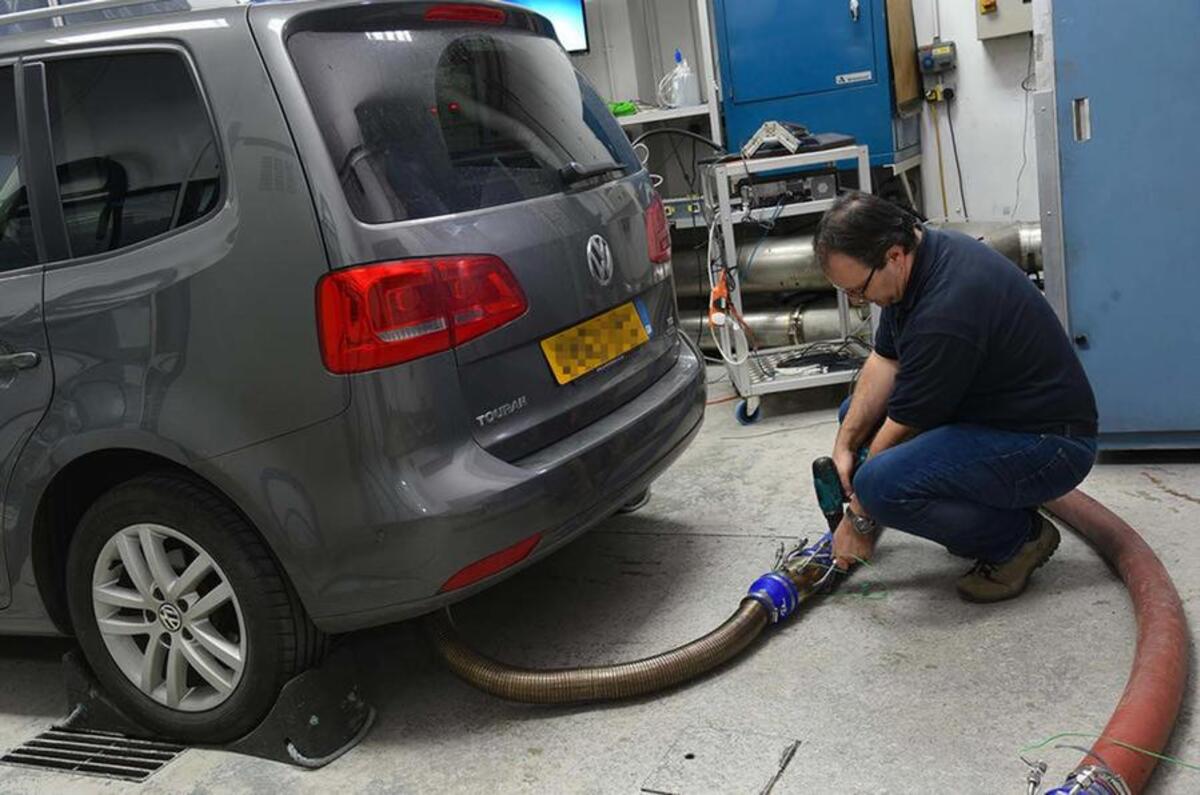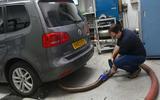Behind the flashy car reveals at the Frankfurt motor show there's an underlying layer of angst from the car makers at the amount of work needed to meet the paperwork requirements for the new WLTP emissions regulations.
The scheme is ramping up over the course of the next year, but one of the requirements is that each spec change must be separately tested, in order to give buyers a more accurate indications of what's possible with the various configurations of engine, gearbox, air-con and so on.
Explained: Autocar's guide to the new WLTP and RDE economy and emissions tests
On paper that seems fair enough, but think about the complexity of some of today's car ranges and you'll start to understand the potential headaches and the increased legwork and paperwork, not to mention the added cost.
Imagine, too, being one of the many manufacturers to have followed Mini’s lead and added numerous personalisation packs and options into the mix. Not all will require re-testing - the go-faster stripes don’t all need assessing - but the bigger ticket options certainly do. And that means a mountain of extra complexity.
The result, so the whispers suggest, have so far been two-fold: firstly, a rush to get as many new cars through testing prior to the 1 September test date as possible, earning the manufacturers an additional 18 months to undergo the new WLTP regime. There’s also an increased likelihood of some cars being quietly withdrawn from sale further down the line, possibly to return once testing is complete.
Looking further ahead, it likely means many manufacturers will simply reduce the options on offer. The weight of work to do is simply too great for even the most organised of them.
Of course, many will say we shouldn’t complain at anything that makes car makers work a bit harder to improve their environmental credentials. I tend to agree, especially as speccing a car has become, in some cases, so complex as to be an irritation rather than a pleasure.
But I wonder, if the net result will be less choice and potentially higher prices as the costs of testing are passed on, whether we might not face the reality of increased testing with some pangs of regret.







Join the debate
Add your comment
The current choice from most
The current choice from most manufacturers are small hatchbacks or a range of SUVs.
So even less choice than that doesn't sound great.
'Pang of regret.' So a deeply
'Pang of regret.' So a deeply cynical industry, which has been gaming the testing regime for years, is forced to clean up its act and this is something to regret? Nah.
Not entirely accurate
This article is correct in it's premise although not entirely accurate in execution.
What will happen is that two tests will be run - WLTP test mass low and WLTP test mass high. This will mean that two CO2 / FE / emissisons values will be generated. One for a completely base spec car with no options at all and one for a top of the range car with every option checked. From this, a penalty per kg will be calculated (assumed to be linear) and then each option ticked by the customer will change the CO2 / FE / emissions number giving more closely the value for the specification.
This is definitely more onorous than the current regeime (which we all know is not accurate) but nowhere near as bad as having to test every single option over the cycle.
From memory I think the only thing that will require more testing is if there are multiple wheel / tyre options so it is possible that certain trim levels will only get certain wheels. I believe that Peugeot already do this for some models and there may well be other too.
@ stavers
Good description of the facts.
Well put and easy to understand
Options
@stavers - the procedure to generate emissions values sounds sensible at first sight, but what happens with options like air con, heated seats etc where there is a usage penalty as well as the obvious one of added weight?
Currently - nothing
As far as I am aware there is currently nothing regarding useage of "luxuries". I believe that there is a plan for the future to include something like A/C but I don't believe that this is currently set. Generally 12V drains are switched off and certain things, like radio, will never be tested as they distract the driver thus ruining the repeatability of the cycle. I know that sounds a bit daft but these tests are intended to be equal for everyone so that comparisons between cars can be made fairly and a variable such as a distracted driver throws a massive spanner in the works.
The US have a cycle which involves a high (~35°C) ambient and solar loading with A/C active and a set cabin temperature so I would expect something similar to come along.
There are some improvements being made for 12V batteries etc. On NEDC all "auxiliary" cicruits (including 12V battery, hydraulics etc.) can be fully charged before the start of the test. This means that you can charge a 12V battery to 100% then allow it to discharge over the cycle before charging from the alternator - most companies allow a discharge that happens to last for about 20 minutes! With the WLTP the battery is charged, the vehicle is run over a pre-coniditoning cycle and then the battery is left so you will get alternator loads at least now! Also, the current used by any battery (12V, 48V, HV) is monitored and has to be charge balanced over the cycle so that you can't just use "free" energy.